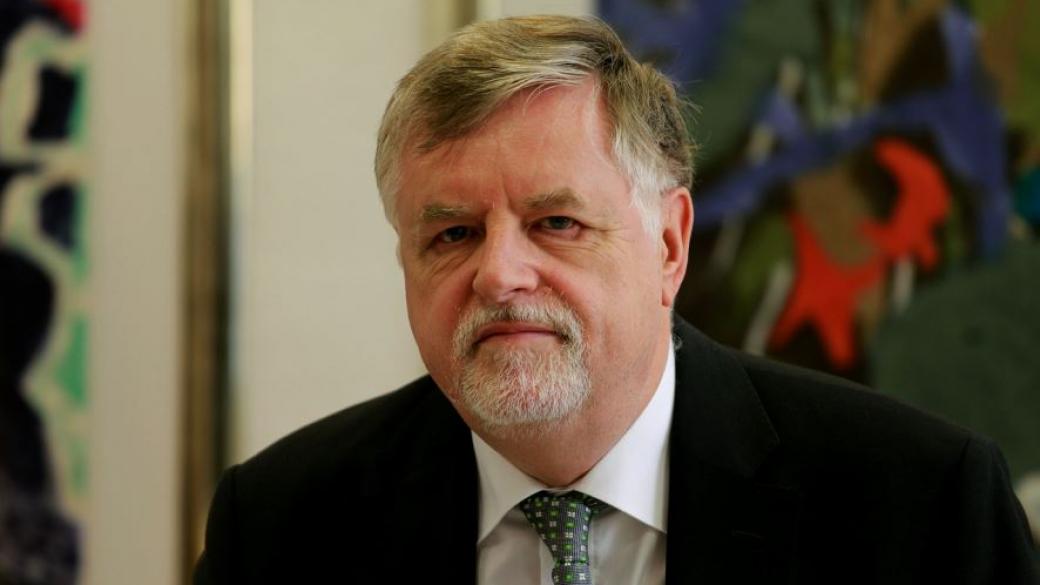Investors need predictable legal and business environment
It is up to Bulgaria to decide when to make the next step towards the Eurozone
HE Herbert Salber, Ambassador of the Federal Republic of Germany to Bulgaria:

© ECONOMIC.BG / EconomyMagazine
HE Herbert Salber has served as Ambassador Extraordinary and Plenipotentiary of the Federal Republic of Germany to Bulgaria since 12th September 2017. He was born on 26th April 1954 in Aachen. He started working in the Federal Ministry of Foreign Affairs holding various positions both in the Ministry and in German diplomatic missions abroad. Mr. Salber is married and has 3 children.
Your Excellency, Germany is one of the biggest foreign investors in Bulgaria. Are there plans for further German investments and if yes, in what sectors?
Statistical data shows that Germany is one of the largest investors in Bulgaria ranking in the top three, if I am not mistaken. Many German companies are certainly considering the possibility of entering the Bulgarian market, but I am not able to talk about specific plans. I could however list the sectors where new investments could be expected: most likely the supermarket chains already present on the Bulgarian market will be looking to expand their business. Other sectors are transport and the automobile industry – the car parts suppliers for instance are also interested in increasing their investments in Bulgaria.
What is the German investors’ perception of the business environment in Bulgaria in terms of legislative framework and security of investments?
The question touches upon a sensitive issue. Since the beginning of my term here I have spoken to many representatives of German companies and they have questions with regard to the legal certainty that is of critical importance to foreign investors. I can give you an example – a debate started in December concerning the outcomes from the privatization in Bulgaria and calls were made for a potential revision of privatization deals. It is not clear whether such a revision will take place, but the very fact that such a debate was initiated breeds uncertainty. Some German companies have been investing in Bulgaria for years and now they are wondering whether their investments are safe. I think that it is in the interest of all that clear rules be established in Bulgaria ensuring legal certainty.
I will give you another example. Some companies are under the impression that some of the measures taken with regard to them are politically motivated. Even at the local level. This also creates uncertainty. I am not saying that this is necessarily the case, as it is not within my competences to make that conclusion, but the very fact that such a perception is created leads to uncertainty and should be avoided. It should be pointed out that it is not only the German companies that are facing such problems but firms from other countries as well.
It would be good if the top political leadership would state its unequivocal and clear commitment to setting a stable legal framework and not revising contracts concluded many years ago.
How can the trade relations between our two countries be boosted?
Boosting economic relations is primarily done via the markets. The legal framework that I mentioned is also of key significance. We, the German Embassy in conjunction with the German-Bulgarian Chamber of Industry and Commerce – the largest bilateral industrial chamber in Bulgaria – make serious efforts to promote the economic relations and we have made significant achievements.
But we are talking about very specific decisions that it is up to the companies themselves to make. We as a government institution can provide information about the situation in Bulgaria. But at the end of the day, it is the private firms that decide whether to work in Bulgaria. In this context the conditions that I talked about are very important.
Reforms are planned in the EU, including expansion of the Eurozone and possible inclusion of Bulgaria. Is our country ready to meet challenges such as the introduction of the Euro and greater integration in the EU?
With respect to Bulgaria introducing the Euro, most signs are that green light for this could be given. The exchange rate of the Bulgarian lev has been stable for many years now, the country performs excellently in terms of public debt, inflation is fully under control. This means that many criteria have been met. And in my opinion, it is Bulgaria that needs to decide when to take the next step. As far as I can tell Bulgaria is approaching the matter very prudently and cautiously which I think is the wise approach. My opinion is that it is very possible for Bulgaria to join the Eurozone at some point.
A very important aspect of this issue however are the living standards and incomes, where the differences between Bulgaria and the West European countries are quite significant. What are the prospects of Bulgaria reaching such standard of living?
Of course, the differences between the EU countries may be quite big. There are however positive developments in that respect – Bulgaria has considerable economic growth, its economic development is generally good, employment is improving. I do not underestimate the real divergencies in the standards of living in Bulgaria and other EU countries which result in many young Bulgarians leaving Bulgaria to live and work in other countries in Europe. But it seems to me that an increasing number of Bulgarians who studied and worked abroad decide to return and make a career here.
If you are asking me if Bulgaria will ever catch up with the Central European or West European countries, I would say that this is feasible, but there is a long road ahead. The history of the EU shows that many countries succeeded if not to catch up with the strongest economies in Europe, to at least improve their economies and hence the standard of living of their citizens.
Currently Bulgaria is in a favourable position being the rotational President of the Council of the EU. Would our country be able to put forward issues from its domestic agenda in addition to those on the European agenda and how?
Of course, Bulgaria may do that at any point in time, not only during its presidency of the Council of the EU. What is impressive about the EU is that each Member State, small or big, can put issues it considers important on the agenda. When a country presides the Council of the EU it should rather be the moderator and make sure that the issues on the agenda are put forward for discussion in such a manner as to achieve the respective goal. It is in this period that Bulgaria can highlight issues that are in its interests. The most popular example is the willingness to bring the countries from the Western Balkans closer to the EU and to accelerate their integration. When you look at the map, you see that this intention of Bulgaria is fully legitimate because EU membership has always entailed better welfare and improved stability which is why Bulgaria is making efforts to speed up the integration of these countries into the EU.
You have been in Bulgaria for 5 months. What are your first impressions and what Bulgaria would you like to see in a few years?
My impressions are very positive, I feel quite comfortable here. Sofia is a good place to live in, the people are very friendly and easy-going, the country has a lot to offer.
And as far as the future is concerned – I hope the positive economic development will be maintained and will be accompanied by stable political development of Bulgaria so that the people in the country would choose a future here. This is the model of the EU – when other countries are doing well, then we are doing well, when there is more security, better economic development, this is good for Europe as a whole.
What needs to be done in some specific areas is clear – for instance improving the infrastructure. But as I said, the specific solutions should be found here, in Bulgaria. The overall sense after the 5 months that I have been here is a sense of optimism that the right solutions will be found.













